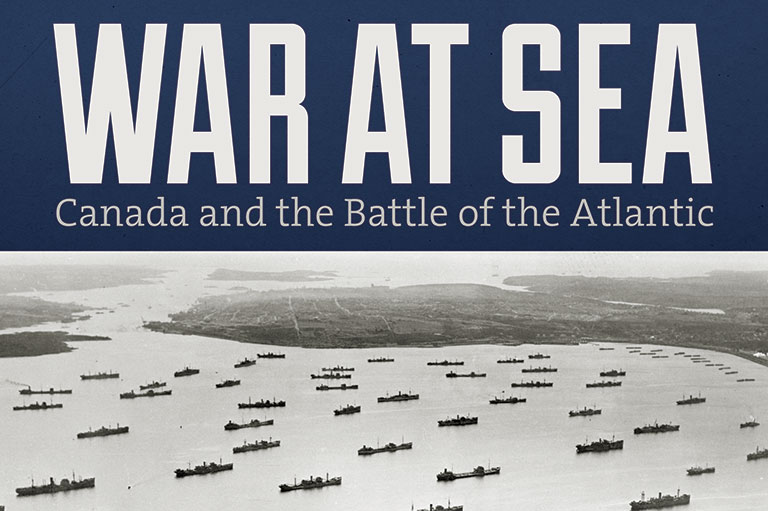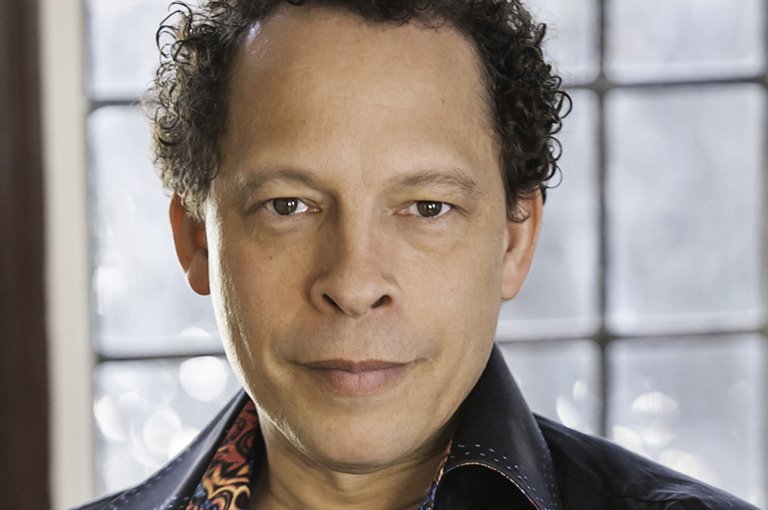Discover a wealth of interesting, entertaining and informative stories in each issue, delivered to you six times per year.
Radio Pioneer
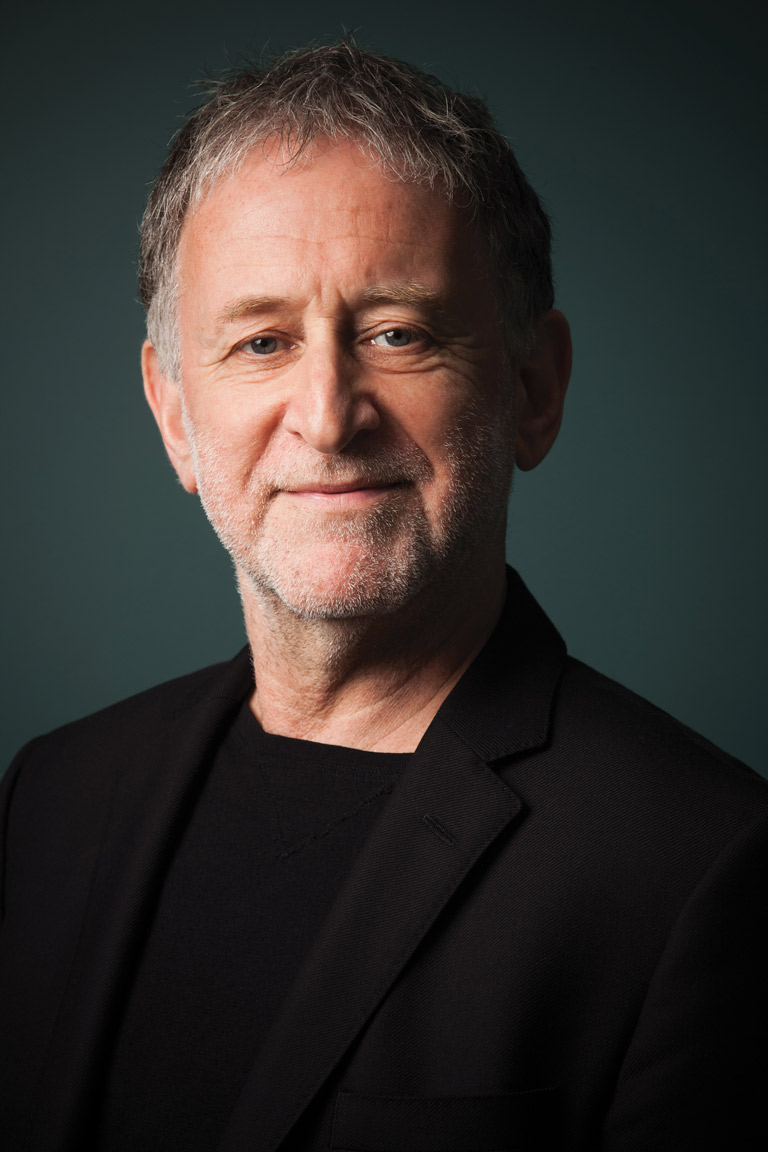
In his latest book, Marconi: The Man Who Networked the World, Marc Raboy explores the life and discoveries of Guglielmo Marconi, the Italian electrical engineer who transmitted a signal across the Atlantic Ocean to Newfoundland in 1901. Raboy is a professor in the Department of Art History and Communications studies at McGill University in Montreal and the Beaverbrook Chair in Ethics, Media and Communications. He spoke with Canada’s History publisher Melony Ward.
Marconi was a giant in telecommunications history. What exactly did he invent?
Marconi developed the first practical system for using radio waves to communicate. That’s the simplest way to put it. Basically, he was working as a young man in his parents’ attic in Bologna, Italy, in the early 1890s, just a few years after the German physicist Heinrich Hertz had announced the discovery of radio waves.
Once radio waves were actually discovered in a laboratory, there were all kinds of people trying to find different uses — scientists, theoretical physicists, and so on. Marconi’s idea was telegraphy without wires. He was interested in communication and began experimenting with radio waves to send Morse code signals from one point to another — across a room basically. When he found that he could do this, he had the intuition, the notion, that it should be possible to use radio waves to send a signal from any point to any other point. And that is basically what he continued working on for the rest of his life.
In the first years, the initial attraction of wireless telegraphy was that you would be able to communicate between places where wires couldn’t go — for example, between ships at sea or to remote islands, where it was difficult to lay cables. It was interesting for commercial applications because the most advanced form of travel at the time was by ship. It also had very important military applications, because on a battlefield you couldn’t easily lay wires to send signals.
Especially if your troops are moving around.
Yes, exactly. When he first developed this, he was advised by family members and friends of his family to patent his — I call it a system, rather than an invention — because he developed a piece of apparatus using components that were already around, that were in some cases associated with other inventors.
But what he did was put these together in such a way that he could send wireless signals; he developed something new. After patenting it, he formed a company that had a single asset, which was his patent. And it proceeded to extend the patent worldwide.
When his company arranged contracts with governments, if it was setting up equipment at a port, or on a ship, it also provided the staff. How did that work?
They developed an interesting and important business model. They didn’t sell the technology; they didn’t sell the equipment. They leased it, they made contractual arrangements. There were a few exceptions, especially with military government agencies, with which he absolutely wanted to do business. The British navy, for example, bought a number of Marconi transmitters. But generally he would lease the equipment, and part of the deal was that he provided the operators.
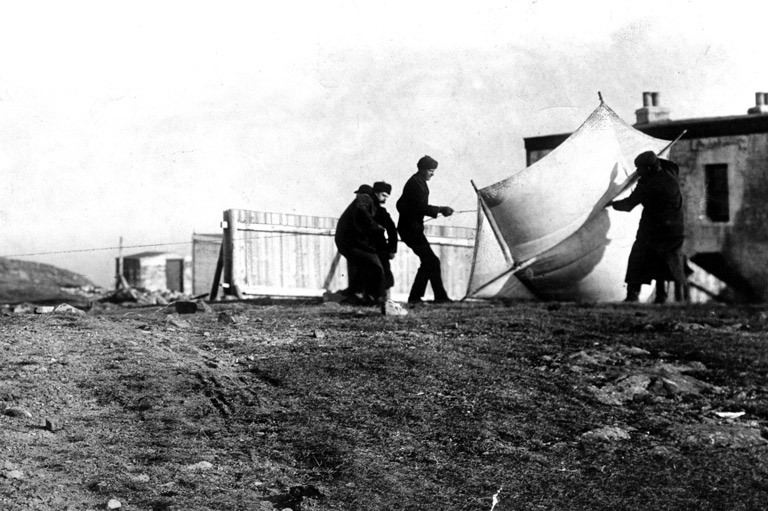
What was the impact of the Marconi installation at the Strait of Belle Isle, between Labrador and Newfoundland?
One of the first widespread uses of Marconi’s system was the creation of shore stations at the Strait of Belle Isle. There would have been a receiving station, which would have been able to receive signals from a passing ship once the ship came within a certain distance. The effective distance that the transmitter was able to operate was about forty or fifty miles [about seventy-five kilometres].
Sign up for any of our newsletters and be eligible to win one of many book prizes available.
When the ship came within that distance of the shore station, there was the chance to exchange messages. … What was important in terms of transatlantic travel was that the ship was still a couple of days away from New York, and it was able to have contact early on.
Why did Marconi set up equipment on what is now the east coast of Canada?
Once he created his company, and the company marketed the system in various ways, Marconi personally continued his research, trying to perfect the system. His main goal was increasing the distance. By early 1901, he was able to send signals from the west coast of England to Ireland, which was a distance of 225 miles [360 kilometres] — the longest distance then achieved.
He realized that the next step was to send the signal across the Atlantic and began looking for a shore station on the Atlantic coast of North America that would be close enough to England to receive the message. He decided to create a station at Cape Cod, Massachusetts, and was working towards that goal, but then in September 1901 the station blew down in a gale.
It took months to construct the receiving station, because you had to put up a mast that was two hundred feet [sixty metres] high. Marconi decided he didn’t want to wait any longer, because there were rivals trying to do the same thing. So he decided to set up a temporary receiving station in Newfoundland, which was substantially closer to Europe.
And not windy at all….
Yes! So what he did, believe it or not, talking about wind — he arrives in Newfoundland in December and goes up to Signal Hill. And he has this system that had been developed during the South African war by the one of the Baden-Powells, a brother of the famous Robert Baden-Powell of the Boy Scouts.
It involved raising a wire by kites. Marconi didn’t have the time and the resources to put up a permanent receiving mast, but he used Baden-Powell kites to lift the wire substantially high enough to receive the signal from England. And that was the first transatlantic message.
That was the letter “S”
It was the letter “S,” the Morse code letter “S.” On the ground level for receiving, he used an adapted version of Bell’s telephone receiver. So he was actually hearing the letter “S.” This proved to him that the transmitter in England was powerful enough to send a signal across the Atlantic. Having done that, he was ready to build a permanent receiving station and to begin to perfect it so that you could send more than the letter “S” — you could send a whole message.
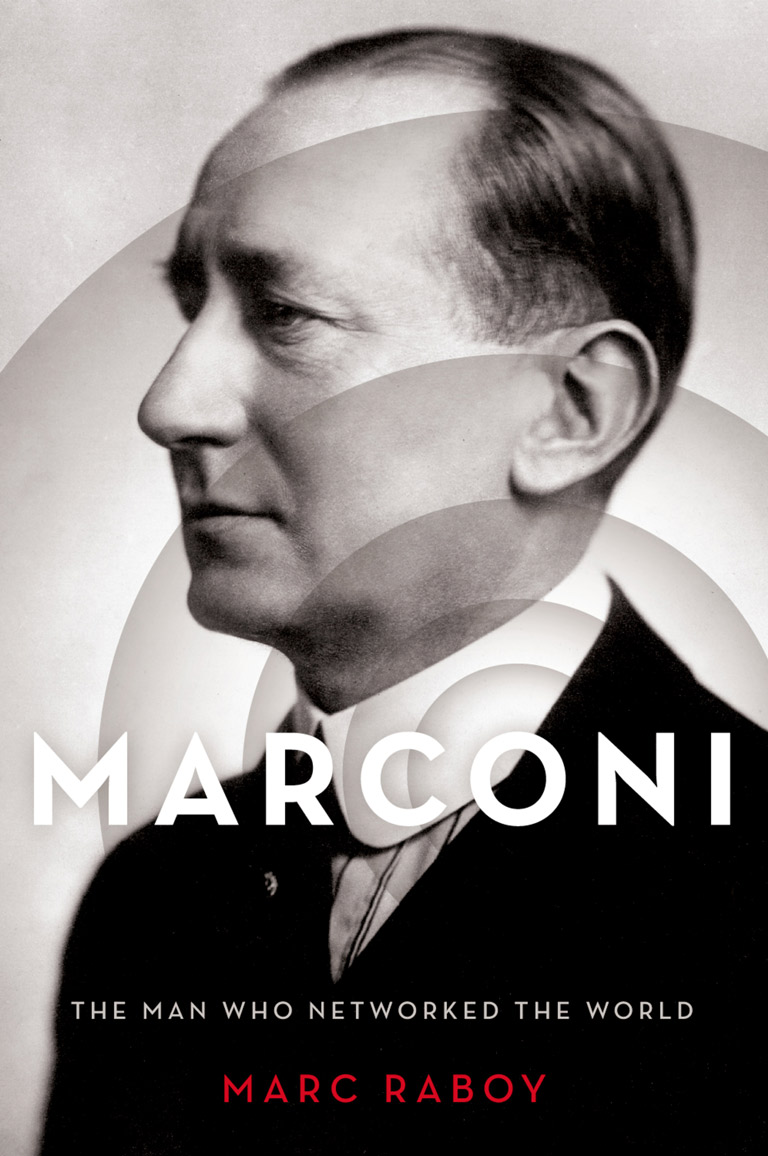
How did Marconi play a role in prime minister Wilfred Laurier’s aspirations for Canada?
Laurier, like everyone else frankly, was aware of what Marconi was doing. Marconi would never announce what he was doing next or what he was intending to do, but he was very good at getting media attention to what he had done. When he sent a message across the English Channel in 1899, this was a fantastic thing, because the English Channel had always kept England and Europe separate, and now they were connected.
Laurier was aware of Marconi, and Marconi already had done some business in Canada with the shore stations, which were basically used for short-distance communication with ships at sea. Laurier's finance minister at the time was a man by the name of [William] Fielding, a former premier of Nova Scotia.
Fielding said that this is a fantastic opportunity for Canada, and for Nova Scotia and Cape Breton. Marconi was physically in Newfoundland at the time, and Fielding cabled him in Newfoundland and said, “Come to Cape Breton.” He arrived in Cape Breton on Boxing Day, and he was wined and dined. He was scouting possible locations, and he found a location he thought would work at Table Head, Glace Bay.
They wanted to bring him to Ottawa to negotiate a contract, so he takes the train and goes to Ottawa. Passing through Montreal, he was hailed as the man of the century with a full page in Montreal’s La Presse. New Year’s Eve 1902 he is in Ottawa and continues to be wined and dined.
He was received like a visiting head of state; the King of England wouldn’t have had a better reception. He was at the Governor General’s New Year’s Day toboggan party. Meanwhile, what he was doing was drafting the contract that he was going to put to the Canadian government.
When I say he was received like a visiting head of state, Marconi and Wilfred Laurier were the two parties to this contract — this was a contract between the prime minister of Canada and the chairman of the Marconi Wireless Telegraph Company. …
It was visionary on the part of Laurier and his government, because they saw that it would be a fantastic boon for Canada, for the Cape Breton region, and in terms of international publicity for Canada. I think they also had in mind the importance of communication for binding Canada. Marconi and his company became over time a very important force in the building of trans-Canadian communication.
But there was also fallout between Canada and Newfoundland at the time.
Yes, because the Newfoundland government wanted to keep Marconi in Newfoundland, and they were prepared to fight the Anglo-American company. It would have been difficult, because they did have this exclusive contract, but it was going to expire in 1904. …
They felt, Sir Robert Bond particularly felt, that Canada had poached Marconi. And there were backroom talks going on at the time about Newfoundland joining Canada in some way. Bond was so angry about this Marconi incident that for a time he didn’t want to have anything to do with Canadian officials. As I say in the book, Marconi was “passing through.” This wasn’t his issue at all, but he had this influence on the evolving course of relations between Newfoundland and Canada.
You spoke about the wireless imagination. That phrase picks up on the worldview of the Futurists — the idea of speed, the collapse of time and space, the pro-technological vision of modernity. What is that wireless imagination?
At the time when Marconi was working, there were other forces at play as well. Air travel, for example, was just beginning. Even the motor car was just coming into play. Getting rid of the wires was a very liberating idea to many people, particularly avant-garde modernist thinkers, particularly the group that called themselves the Futurists….
The Futurist manifesto actually evokes the idea of technology and wireless as a liberating force. Interestingly, quite a bit ahead in the story, [Benito] Mussolini and fascism emerged in the 1920s, but initially one of the attractions to the very, very early ideology of fascism was tied to an idea that turned out to be totally imaginary…. So you had figures like the poet like Gabriele D’Annunzio, the revolutionary poet, who was very close to Marconi.
They admired each other, although they were as different as two people could possibly be. Marconi became one of the figureheads of modernism in the first 20 years of the century, both before and after the First World War.
He was also an Italian patriot, and he was very discouraged by what he saw as the unfair treatment of Italy by the other victorious powers in the First World War. Marconi was a delegate to the Paris peace conference in 1919; it meant he had private meetings with [U.S. President Woodrow] Wilson. He felt that Italy's demands were not being adequately addressed.
Then along comes Mussolini, who is a relatively unknown figure, but who begins to build a movement. The base of Mussolini’s initial movement was Italian war veterans who came back from the war and had nothing to come back to. The economy was in ruins, the political elites were unable to deal with it and there was an alternative, the alternative of socialism and communism, which was rising.
Save as much as 52% off the cover price! 6 issues per year as low as $29.95. Available in print and digital.
It was attractive to many working-class people in Italy and at the same time was very threatening to the elites. So it was natural in some respects for someone of Marconi’s class and social background and bearing — and being an Italian patriot, and being a figure of the avant-garde — to be attracted to Mussolini. And Mussolini very smartly recognized that a figure like Marconi could bring tremendous credibly to his movement, especially outside of Italy, where Mussolini was completely unknown and Marconi was a universally admired figure.
There is one point where you talk about a person walking down the street and they have a square thing in their pocket. Marconi had a vision of being able to pick the thing up and talk to somebody in another city. They’re cell phones … they’re smartphones. He’s seeing it 100 years before it happened. This wireless imagination completely defines his age. How much has he defined our own?
In his vision in what he was trying to do, in some of the things he said and wrote, he did foreshadow our time. Marconi believed in global long=distance, wireless, mobile communication — those are the key words. And he was quite critical of some of the developments he saw, some of the uses that he saw being made to his early work.
For example, when broadcast radio emerged in the 1920s, Marconi thought it was frivolous; this was not what the technology was meant to do. But then he came around to it for two reasons: One is that he recognized and he was convinced by his company that there was a lot of money to be made by selling equipment, selling radio sets…. But he also began to get the idea that radio broadcasting could be an educational force. It could be a way for high-minded, intelligent “omniscient” speakers to reach the masses of people. He began to advocate for that kind of use of radio.
And then along came demagogic politicians who began using radio in that way. It became problematic for him in the sense that Marconi was very torn. He died in 1937, by the way, and in his last years, he lived through the deteriorating relations between Italy and England, and he was very torn by that.
Marconi had an extremely conventional approach to European colonialism. He thought this was it, this was the way the world ought to be. So when Mussolini invaded Ethiopia in 1935, Marconi supported this because he thought, why shouldn’t Italy have colonies?
When he tried to go promote that view in England, he asked for airtime on the BBC, and the BBC refused … because Britain was opposing Italy’s invasion of Ethiopia. Marconi felt that was completely opportunistic on the part of England. England had a very high-minded discourse, saying the colonial period was over … except maybe in India and where they were based.
Marconi was very torn by this, and he wasn’t happy about the emerging relationship between Italy and Nazi Germany, although he kept these views private. Publicly, he remained a stalwart pillar of Mussolini’s regime, and then he died conveniently, as I say, in 1937.
He would have had to deal with some difficult things. Marconi was a fascist, unquestionably, but if we put that in context, there was no prior experience in Marconi’s time — a fascist simply meant a member of Mussolini’s Fascist Party. That was the first fascist party, there was no historical reference….
In Italy, historians consider Marconi, let’s say, a moderate fascist, or in the moderate wing of the Fascist Party. For example, I found nothing to indicate that he was in any way anti-Semitic. But there was a right wing of the Fascist Party that was virulently anti-Semitic, and Marconi got caught up in that in many respects.
He was certainly one of a handful of people who could have broken with Mussolini if he had been temperamentally suited to do that. And maybe it was too late in his life — he was tired of fighting and trouble, and he acquiesced and he went along. We don’t know what would have happened if he had lived even a bit longer.
We hope you will help us continue to share fascinating stories about Canada’s past.
We highlight our nation’s diverse past by telling stories that illuminate the people, places, and events that unite us as Canadians, and by making those stories accessible to everyone through our free online content.
Canada’s History is a registered charity that depends on contributions from readers like you to share inspiring and informative stories with students and citizens of all ages — award-winning stories written by Canada’s top historians, authors, journalists, and history enthusiasts.
Any amount helps, or better yet, start a monthly donation today. Your support makes all the difference. Thank you!
Themes associated with this article
Advertisement


